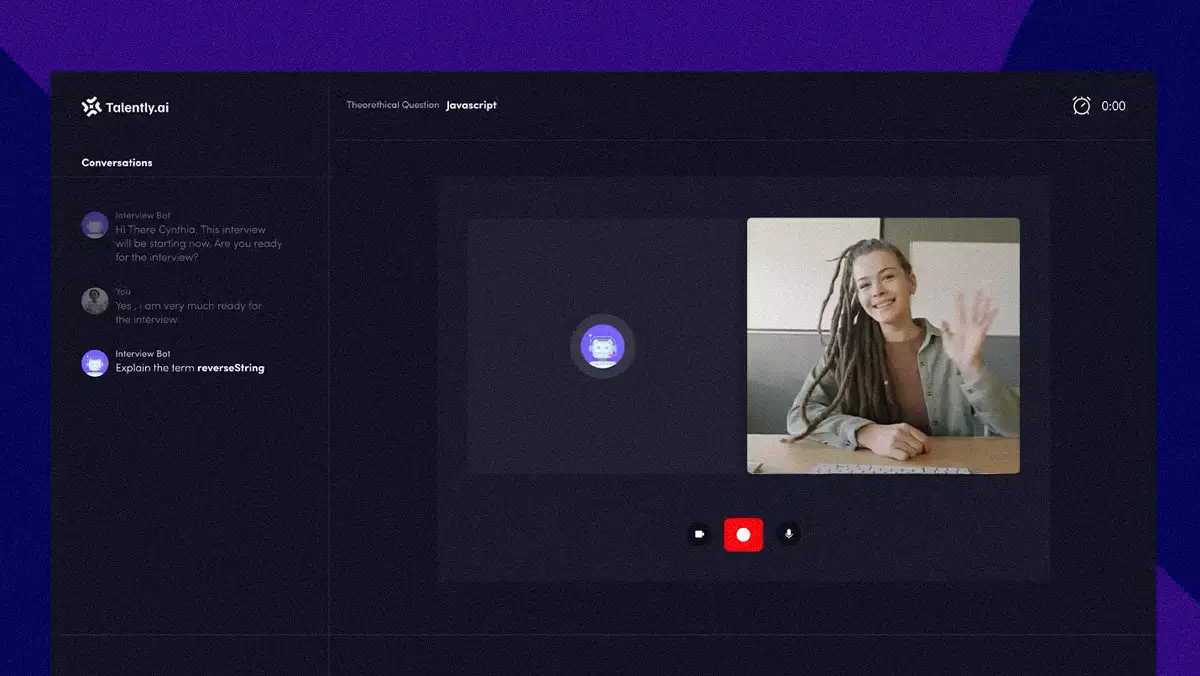‘The Great Mismatch’ of AI and human abundance, with Clayton Lord of SHRM

Key Points
SHRM Foundation’s Clayton Lord highlights a shift towards skills-first hiring, reducing the emphasis on formal education.
AI is enabling a more comprehensive evaluation of candidates’ skills, improving job matching.
The future of work is envisioned as more human-centric, with AI handling transactional tasks.
We must value skills no matter where they were collected. If someone has a doctorate, that’s amazing. If they collected their skills from being a caretaker for twenty years, that’s fantastic too.

Clayton Lord
Senior Program Director
SHRM Foundation
The narrative around artificial intelligence in the workplace has been dominated by a single, pervasive fear: replacement. As automation grows more sophisticated, the story goes, human jobs will inevitably be rendered obsolete. At the recent SHRM Annual Conference & Expo, a different, more nuanced conversation was taking place—one centered not on fear, but on a surprising sense of possibility.
We spoke with Clayton Lord, the Senior Program Director for the SHRM Foundation, the philanthropic arm of the Society for Human Resource Management. With a mandate to shape a world of work that helps people and businesses thrive together, Lord argues that the most forward-thinking leaders are looking past the hype and seeing AI not as a replacement for people, but as the key to unlocking their full potential.
Energized possibility: “I’m seeing people feeling energized at possibility instead of worried,” Lord said. The source of that energy is a fundamental reframing of AI’s role. “Most people are talking about how they can use AI to maximize human potential, not replace humans.” He sees the technology as a powerful tool that, if wielded responsibly, can solve one of the most persistent challenges in the modern economy.
The great mismatch: The core problem, as Lord frames it, was succinctly captured by SHRM CEO Johnny C. Taylor, Jr.: “People are looking for jobs, and jobs are looking for people, but they’re not finding each other.” This disconnect isn’t due to a lack of talent, but a failure of communication and recognition. “It’s a mismatch where the plug isn’t complicated enough for the outlet in the wall,” Lord explained. While companies decry a “talent scarcity,” Lord sees an “abundance of what a human has to offer” that is simply being overlooked by outdated systems.
A revolution in hiring: This change in perspective is being driven by necessity. “We’re in a demographic moment where there are more people leaving the workforce than there are entering it,” Lord noted, creating an urgent need for a new approach to talent: skills-first hiring. The proof is in the data. “We’re already seeing this precipitous decline in the number of job descriptions that require a four-year degree—from 75% two years ago to about 50% today,” Lord said. This trend is backed by external data; a February 2024 report from Indeed Hiring Lab found that a majority of U.S. job postings now carry no formal education requirement.
In practice, this means redefining what qualifies as valuable experience. “We must value skills no matter where they were collected,” Lord insisted. “If someone has a doctorate, that’s amazing. If they collected their skills from being a caretaker for twenty years, that’s fantastic too.” AI is the technological enabler that makes this mindset scalable. Instead of “whittling people down” through resumes, AI can act as a universal translator, helping employers see the “full richness” of a candidate’s abilities and matching them to the right roles.
Efficiency for humanity: The ultimate goal isn’t just to fill jobs more efficiently, but to make those jobs more human. “What that means is that everyone has two more days a month to do amazing human-centered work they might otherwise not have had time to do,” Lord explained. This is the “maximize human potential” thesis in action: automating rote tasks to free up people for uniquely human work like mentorship, strategy, and connection.
In short, technology enables a future that is more human. As AI handles the transactional parts of work, “eventually, we’re going to get to a moment where the efficiency optimization has all happened, and what’s left are that the jobs that can’t be replaced by the technologies.” This leads to more fulfilling work and better outcomes for everyone. “The future of work is, in the most optimistic way, about helping people thrive so they can better their businesses, which is exactly what the SHRM Foundation is about.”
The future of work is, in the most optimistic way, about helping people thrive so they can better their businesses, which is exactly what the SHRM Foundation is about.

Clayton Lord
Senior Program Director
SHRM Foundation
The future of work is, in the most optimistic way, about helping people thrive so they can better their businesses, which is exactly what the SHRM Foundation is about.

Clayton Lord
Senior Program Director
SHRM Foundation
Related articles
TL;DR
SHRM Foundation’s Clayton Lord highlights a shift towards skills-first hiring, reducing the emphasis on formal education.
AI is enabling a more comprehensive evaluation of candidates’ skills, improving job matching.
The future of work is envisioned as more human-centric, with AI handling transactional tasks.

Clayton Lord
SHRM Foundation
Senior Program Director

Senior Program Director
The narrative around artificial intelligence in the workplace has been dominated by a single, pervasive fear: replacement. As automation grows more sophisticated, the story goes, human jobs will inevitably be rendered obsolete. At the recent SHRM Annual Conference & Expo, a different, more nuanced conversation was taking place—one centered not on fear, but on a surprising sense of possibility.
We spoke with Clayton Lord, the Senior Program Director for the SHRM Foundation, the philanthropic arm of the Society for Human Resource Management. With a mandate to shape a world of work that helps people and businesses thrive together, Lord argues that the most forward-thinking leaders are looking past the hype and seeing AI not as a replacement for people, but as the key to unlocking their full potential.
Energized possibility: “I’m seeing people feeling energized at possibility instead of worried,” Lord said. The source of that energy is a fundamental reframing of AI’s role. “Most people are talking about how they can use AI to maximize human potential, not replace humans.” He sees the technology as a powerful tool that, if wielded responsibly, can solve one of the most persistent challenges in the modern economy.
The great mismatch: The core problem, as Lord frames it, was succinctly captured by SHRM CEO Johnny C. Taylor, Jr.: “People are looking for jobs, and jobs are looking for people, but they’re not finding each other.” This disconnect isn’t due to a lack of talent, but a failure of communication and recognition. “It’s a mismatch where the plug isn’t complicated enough for the outlet in the wall,” Lord explained. While companies decry a “talent scarcity,” Lord sees an “abundance of what a human has to offer” that is simply being overlooked by outdated systems.
A revolution in hiring: This change in perspective is being driven by necessity. “We’re in a demographic moment where there are more people leaving the workforce than there are entering it,” Lord noted, creating an urgent need for a new approach to talent: skills-first hiring. The proof is in the data. “We’re already seeing this precipitous decline in the number of job descriptions that require a four-year degree—from 75% two years ago to about 50% today,” Lord said. This trend is backed by external data; a February 2024 report from Indeed Hiring Lab found that a majority of U.S. job postings now carry no formal education requirement.

Clayton Lord
SHRM Foundation
Senior Program Director

Senior Program Director
In practice, this means redefining what qualifies as valuable experience. “We must value skills no matter where they were collected,” Lord insisted. “If someone has a doctorate, that’s amazing. If they collected their skills from being a caretaker for twenty years, that’s fantastic too.” AI is the technological enabler that makes this mindset scalable. Instead of “whittling people down” through resumes, AI can act as a universal translator, helping employers see the “full richness” of a candidate’s abilities and matching them to the right roles.
Efficiency for humanity: The ultimate goal isn’t just to fill jobs more efficiently, but to make those jobs more human. “What that means is that everyone has two more days a month to do amazing human-centered work they might otherwise not have had time to do,” Lord explained. This is the “maximize human potential” thesis in action: automating rote tasks to free up people for uniquely human work like mentorship, strategy, and connection.
In short, technology enables a future that is more human. As AI handles the transactional parts of work, “eventually, we’re going to get to a moment where the efficiency optimization has all happened, and what’s left are that the jobs that can’t be replaced by the technologies.” This leads to more fulfilling work and better outcomes for everyone. “The future of work is, in the most optimistic way, about helping people thrive so they can better their businesses, which is exactly what the SHRM Foundation is about.”




